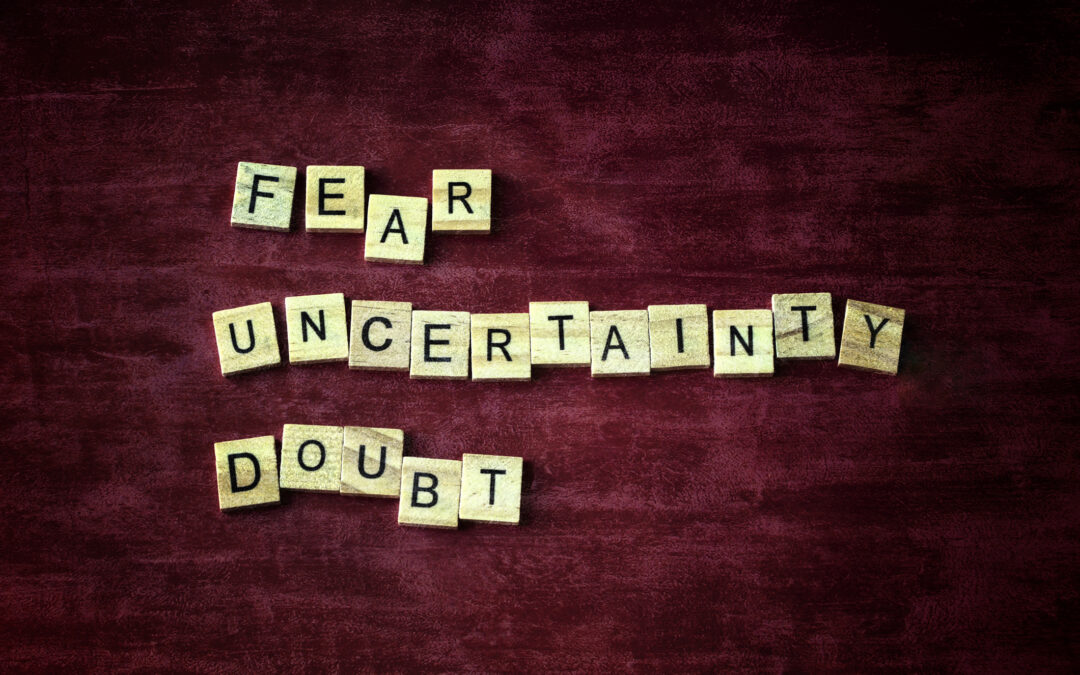Have you ever felt completely overcome by an intense emotions? Have feelings at times felt challenging to manage and overcome? The experience of being “overwhelmed” is uncomfortable and impactful in your life at work, home, or school.
Defining “Overwhelm”
Emotional overwhelm entails more than being stressed. You can feel submerged life’s current problems, to the point where you lack efficacy and feel frozen or paralyzed.
Compare the feeling of being overwhelmed to being submerged in a rough wave. It’s a scary experience! You may not know which way is up or what way to swim. You may feel stunned and unable to react. You may be unable to think or act rationally or functionally.
Whether brought on by events in the world (ahem, global pandemic) or events in your work or family life, emotional overwhelm can occur for a short burst of time or over a much longer period.
Sometimes, like many are experiencing in 2020, a series of hardships and challenges occurring in rapid succession can trigger someone to feel overwhelmed. Common experiences that may have lead to emotional overwhelm this year include:
- Suddenly homeschooling your children
- Experiences of racism or discrimination
- Worry about systemic or political matters
- Quarantining and isolating from friends
- Cancellation of social hobbies and sports
- Physical illnessor worry about COVID-19
- Traumatic events
- Relationship crises
- Increased workload
- Serving as a front-line worker
- Newly working from home
- Getting laid off or furloughed
- Financial distress and insecurity
- Deadlines and time constraints
- Death of a loved one
- Wildfires or other natural disaster
- (And can we also add Murder Hornets?)
Managing Emotional Overwhelm
Here are some strategies that can help mitigate feelings of overwhelm:
Embrace Anxiety
Fighting against high anxiety doesn’t help. In fact, it can add on a “secondary anxiety” that makes you feel anxious about your anxiety. Instead, try to remember that anxiety is an expected response to being out of your comfort zone. It is a “normal” human emotion. The feeling is uncomfortable but not dangerous.
Acceptance means allowing for uncertainty and discomfort, mindfully acknowledging it, and keeping on with what you can do instead of dwelling on what you can’t. Sometimes “acceptance” means non-judgmentally sitting with the feeling in your body, assuring it that it’s “welcome,” and allowing yourself to experience it with curiosity.
If you’d like to learn more about this skill, check out “The Happiness Trap: How to Stop Struggling and start Living” by Russ Harris.
Challenge Negative Thoughts
Distorted, negative thoughts build up as anxiety grows and can amplify your feelings of overwhelm. In his book “Feeling Good,” Dr. David Burns lists 10 common cognitive distortions that often fuel feelings of distress. By noticing negative thought patterns, stopping them in their tracks, and re-writing them with more balanced, neutral, and accurate thoughts, you should notice a reduction in distress.
Practice Mindful Grounding–
If your feelings of overwhelm are future-oriented “what if” thoughts, try out 5-senses grounding skills to bring you back into the present. The Calm meditation app is a great resource for guided meditation and practicing being present.
Prioritize and Let Go of the Rest
Ruthlessly cut out extraneous and optional activities that don’t fully align with your top priorities and core needs. There aren’t as many “shoulds” and “have-to’s” in this life as sometimes our culture makes it seem. What are the true “essentials” in your life? Is there anything you can let go of for now?
Center on Core Values
If you are feeling powerless over world events and broken systems, center on your core values. Give your values a specific name (ex. Acceptance; Equality; Freedom). Imagine that your value is speaking to you right now. What does it whisper? Feel it encourage, uplift, and ground you. Imagine yourself feeling rooted in them.
Get Organized
Write down your to-do list and track activities on you schedule. When life becomes too busy, holding these things in your head is too much. Your thoughts can spin with all of your to-do’s so you don’t forget. Let a piece of paper (or your smart phone) hold on to the to-do’s for you. If you struggle with staying organized, you might try out Microsoft To Do, an app for organizing lists and tasks.
Start Therapy
There are times in everyone’s life when it’s time to ask for help. A therapist is able to help you identify triggers for your feelings of overwhelm and craft a coping plan specifically for you. Help is available! You don’t have to do this by yourself.

Coping with Political Anxiety
Coping with Political Anxiety: How Therapy Can Help In today’s world, it’s nearly impossible to avoid the constant stream of political news. For many, staying informed is essential—but for others, the weight of political turmoil can become overwhelming, leading to...
Overcoming Perfectionism with Acceptance and Commitment Therapy (ACT)
Perfectionism is often celebrated in our society, but for many, it can become an overwhelming burden. When perfectionism takes over, it can lead to constant self-criticism, avoidance of challenges, and a deep fear of failure. Acceptance and Commitment Therapy (ACT)...
Climate Anxiety
Hope, Action, and Climate Advocacy “I thought I couldn’t make a difference because I was too small.” -Greta Thunberg We live in the age of information, which means it is increasingly difficult to limit one’s access to breaking news. More and more we are seeing...
Get Outside For Your Brain
When I am among the trees, Especially the willows and the honey locust, Equally the beech, the oaks and the pines, They give off such hints of gladness I would almost say they save me, and daily. Excerpt, "When I Am Among The Trees" by Mary Oliver We live in a world...
Managing Depression alongside Chronic Illness
If you’re reading this, chances are you or someone you care about is dealing with the challenges of chronic illness or disability, which can often trigger feelings of depression. Today, we’re going to dive into some strategies for navigating this journey with...

